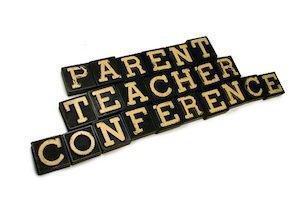Handling Parent-Teacher Conferences after Divorce
 The school year is in now full-swing. Most children have settled into their school routine, becoming accustomed again to regular schedules and homework. For students with divorced parents, the routine can be a little more complicated, but at this point in the year, some sort of balance has usually been established.
The school year is in now full-swing. Most children have settled into their school routine, becoming accustomed again to regular schedules and homework. For students with divorced parents, the routine can be a little more complicated, but at this point in the year, some sort of balance has usually been established.
If you are a divorced parent, you may be unsure how to handle the inevitable parent-teacher conference, especially if the divorce was recent. You want to be involved in your child's education and realize your ex-spouse probably wants the same. Regardless of your relationship's history, there are ways for both parents to be included and to remain a part of the discussion.
Prepare Early
At the very beginning of the school year, it is important to make the child's teacher aware of the family's situation. Divorced parents may be a new reality for your child, but teachers are usually accustomed to separated families. In particularly contentious relationships, it may be worthwhile to notify the school and teachers in writing of how best to keep both partners involved, or not involved, depending on what may be appropriate.
Focus on the Child
Your child's well-being must be of ultimate importance to everyone involved. Parent-teacher conferences are not an arena for parenting contests. The teacher is not interested in taking sides nor likely to care which parent took the child to the park last week, because "someone" got called into work "again." Although difficult, parents should make every effort to utilize the opportunity to identify and address the educational need of the child.
Understand and Plan Accordingly
Healthy self-awareness regarding your relationship with your ex-spouse can be a tremendous asset for a constructive conference. Some couples may realize that they can make better use of their time and that of the teacher by scheduling separate times to meet. They know that their own relationship is not stable enough to keep the focus on the child's needs and make plans with that in mind. It is also important to understand the desired role of any step-parents or new partners, and to set boundaries if necessary, again, to ensure the child's education takes priority.
Listening and Self-Control
During the meeting, the teacher may communicate unexpected or unpleasant information about your child. For some individuals, it can be tempting or even reflexive to blame the other parent. Of course, certain situations may call for a frank discussion between the parents, but for the purposes of the conference, your child's teacher needs you to be an advocate for your child. This could mean biting off a sarcastic comment, or simply taking a deep breath to avoid unnecessary confrontation.
Every family's situation is unique, and there is not one right way to guarantee a successful parent-teacher conference. However, with some preparation, communication, and mutual respect, both the parents and the teacher can be assured the child's best interests are being considered.
If you live in Illinois and are considering divorce, contact an experienced Wheaton family law attorney. We can help you understand how the process might affect you and your children.

 630-665-2500
630-665-2500







